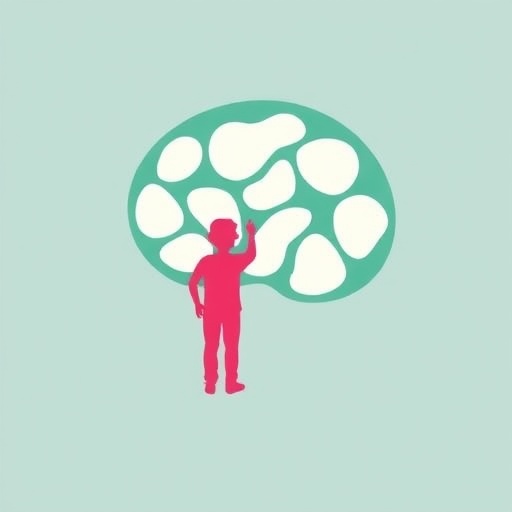In recent years, the increasing prevalence of mental health challenges among young people has spurred urgent calls for innovative approaches to care. A particularly vulnerable demographic is youth and emerging adults, typically defined as individuals aged between 16 and 25, who have consistently demonstrated the highest rates of mental health disorders compared to other age groups worldwide. This troubling trend compels clinicians, researchers, and policymakers alike to reconsider traditional models of care and develop youth-centred practices that are not only therapeutically effective but also empowering for this age group.
Youth-centred practice (YCP) is an emerging concept in mental health care that aims to place young people at the core of their treatment experience. Unlike conventional models that often position clinicians as sole experts, YCP advocates for a collaborative approach, promoting autonomy and agency among youth. Despite its growing adoption across mental health services, the exact contours of what constitutes youth-centred care remain elusive, lacking a universally agreed-upon definition. A recent study conducted by researchers affiliated with MINDS of London-Middlesex provides critical insights into how mental health professionals conceptualize and operationalize YCP, moving the field toward a clearer understanding.
The study employed a Youth Participatory Action Research (YPAR) framework, a method that actively involves youth not merely as subjects but as co-researchers throughout the investigation process. This approach reflects the ethos of YCP itself—valuing the lived experiences and perspectives of young people. Collaborating closely with youth research assistants, the team engaged 13 mental health professionals, including clinicians, administrative staff, and trainees, all of whom were involved in programs identified as employing youth-centred methodologies. Through qualitative focus groups and interviews guided by appreciative inquiry, the researchers explored nuanced understandings and practical applications of YCP.
The analytical process revealed five foundational themes critical to defining youth-centred practice in the mental health context. Foremost among these is the recognition of YCP’s vital role in supporting the mental health of youth and emerging adults. Participants underscored that effective youth-centred care requires a deep appreciation of the developmental, social, and emotional complexities unique to this life stage. Tailoring interventions to these specific needs is instrumental in fostering meaningful therapeutic engagement and outcomes.
Another prominent theme is the cultivation of authentic and meaningful relationships between young people and their care providers. Trust and rapport emerge as central pillars in these interactions, enabling young people to feel respected, heard, and valued. This relational dimension is not merely supportive but foundational, as it serves to empower youth to actively participate in their care rather than passively receive it. The establishment of genuine connections challenges the traditional hierarchical practitioner-patient dynamic.
Collaboration forms the third theme, highlighting the principle that youth are active agents in their treatment journey. This partnership model facilitates shared decision-making, reinforcing young people’s rights to make informed choices about their mental health care. The shift from viewing practitioners as unilateral experts to partners in care transforms the therapeutic landscape, fostering a sense of agency and ownership for youth that is often lacking in conventional mental health services.
Accessibility and engagement represent another crucial focus, emphasizing the necessity of designing services that are not only available but also approachable and responsive to young people’s preferences and contexts. Physical accessibility intersects with cultural competency, flexible scheduling, and innovative outreach to lower barriers to care. These adaptive strategies can significantly enhance youth involvement, reducing attrition rates and promoting sustained engagement.
Lastly, the study highlights the imperative to transition youth-centred practice from an intuitive or tacit understanding to a formalized, trainable construct. Participants advocated for systematizing YCP principles into structured training programs that equip mental health professionals and staff with the competencies required to deliver truly youth-centred care. This shift acknowledges the complex, evolving nature of youth needs and the importance of ongoing reflexivity within service systems.
Central across these themes is the recognition that mental health systems must remain responsive and attuned to the dynamic and fluid nature of youth experiences. Society and its challenges continuously evolve, and care models must adapt accordingly to remain effective. Reflexivity and flexibility are therefore essential, allowing for the ongoing refinement of approaches in response to shifting societal contexts and individual needs.
The implications of these findings extend beyond theoretical discussions. Embedding YCP within mental health services promises not only to enhance clinical outcomes but also to foster empowerment, autonomy, and resilience among youth and emerging adults. This transformational approach aligns with broader public health goals that emphasize person-centred care and social justice, acknowledging the unique contributions and rights of young people as active participants in their wellbeing.
By involving youth directly in research and service design, institutions not only legitimize their experiences but also promote innovative solutions that resonate more effectively with this demographic. Such participatory frameworks serve as exemplars of best practice, demonstrating how collaboration across age and professional lines can generate robust and nuanced understandings that translate into practical improvements.
The ongoing challenge remains how best to integrate these insights into widely accessible and scalable frameworks within diverse mental health systems, many of which are constrained by resources, structural inertia, and competing priorities. However, the evidence suggests that the benefits of investing in the formalization and dissemination of youth-centred practices far outweigh the costs, representing a meaningful avenue to address the escalating mental health needs of young people.
In conclusion, youth-centred practice marks a significant paradigm shift in the mental health landscape. By centring on collaboration, authenticity, accessibility, and empowerment, YCP offers a promising framework for transforming care and improving the lives of young people. As mental health systems worldwide confront growing demands, embracing this youth-driven model may be key to fostering sustained wellbeing and enabling young people to navigate their challenges with dignity and agency.
Article Title: Defining youth-centred practice in mental health care
Article References:
Cook, A., Hunt, R., Silcox, J. et al. Defining youth-centred practice in mental health care. BMC Psychiatry 25, 578 (2025). https://doi.org/10.1186/s12888-025-06864-7
DOI: https://doi.org/10.1186/s12888-025-06864-7
Image Credits: AI Generated




